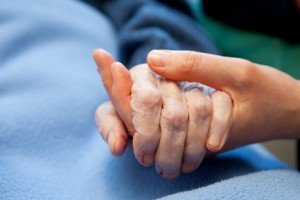Search
Walker v. Maine General Medical Center (792 A.2d 1074)
 Articles: Maine
Articles: Maine
Walker v. Maine General Medical Center (792 A.2d 1074)
- CASE:
- Walker v. Maine General Medical Center (792 A.2d 1074)
- PARTIES:
-
Plaintiff (Appellee) – Patricia Walker, individually and on behalf of husband’s estateDefendant (Appellant) – Maine General Medical Center
- COURT:
- Supreme Judicial Court of Maine (2002)
- PROCEDURAL HISTORY:
-
Plaintiff sued defendant as well as Dr. Omsberg, for malpractice. A jury returned a verdict finding that Dr. Omsberg was negligent but that his negligence was not a proximate cause of Plaintiff’s husband’s death.
They found that the hospital was negligent and its negligence was a proximate cause of death. They also found that Plaintiff’s husband was negligent and his negligence was a proximate cause of his own death, but his negligence was not greater than or equal to the hospital’s.
The jury figured damages to be $1,476.523.40, but that was reduced to $32,000 due to comparative negligence. The jury also granted Plaintiff $150,000 individually for her emotional distress. Plaintiff appealed, asking for a new trial on the damages based on confusing instructions given to the jury regarding comparative negligence. The court granted a new trial, but on all issues for all parties. A second trial was had and the jury in the second trial found no negligence on the part of the hospital or Dr. Omsberg. Plaintiff appealed.
- SUMMARY OF FACTS:
-
On June 27, 1994, Ralph Walker (deceased), husband of the plaintiff had back surgery performed by Dr. Omsberg at Maine General Hospital. Ralph was discharged on June 29 with instructions to have extremely limited activity for two weeks, and to watch for and report to the hospital any signs of infection, along with prescriptions for an anti- inflammatory steroid that, unbeknownst to him, could mask the signs of infection.
Dr. Omsberg paid the hospital to provide his answering services for evenings and weekends. The answering service’s records indicate that it received a call from or about Ralph, reporting severe pain, redness and swelling. Dr. Omsberg claims he never received the message. Aside from that message, there was no communication between Ralph and the hospital or Dr. Omsberg between July 5 and July 14.
On July 13, Ralph had pain and chills, and that night his surgical wound began seeping. On the morning of the 14th, plaintiff contacted the hospital with Ralph’s symptoms and was told to contact the Dr. Ralph was admitted to the hospital at 3pm on the 14th by Dr. Omsberg for severe infection. He died the next morning due to ventricular fibrillation.
- OUTCOME AT TRIAL:
-
The second jury found no negligence by Dr. Omsberg or the hospital and entered a judgment accordingly.
- ISSUES ON APPEAL:
-
Should the subject of a second trial have been confined to damages, rather than all issues of negligence to all parties?
- SUPREME COURT HOLDINGS:
- No
- RELEVANT APPLICATION OF LAW:
- “The question of damages is “so interwoven with that of liability that the former cannot be submitted to the jury independently of the latter without confusion and uncertainty, which would amount to the denial of a fair trial.”
 Nursing Home Law News
Nursing Home Law News

